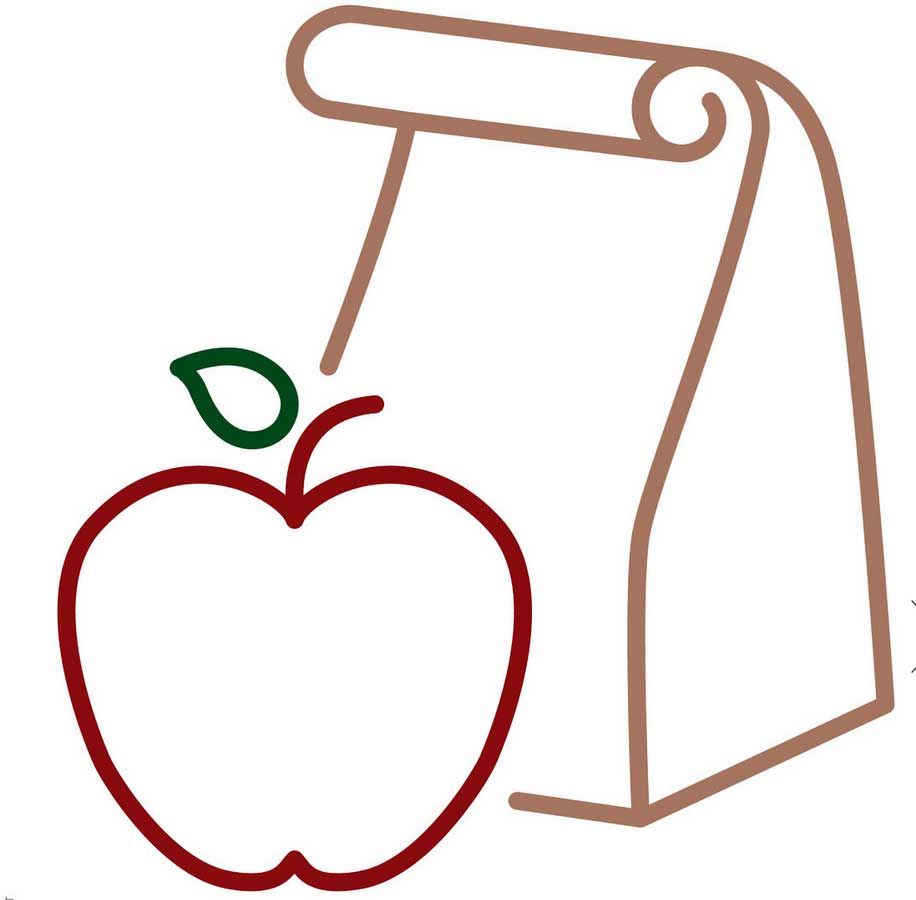Brown Baggers
FEEDING THE HUNGRY IN SONOMA VALLEY
Sonoma Valley, a lush land of bucolic vineyards and beautiful homes and gourmet grocery stores and restaurants. Yes, but . . .
Living alongside all of these are the people who work in those vineyards, or in the tourist industry that drives much of our local economy, many earning a minimum wage that barely sustains in this expensive area. There are retirees and those who—for whatever reason—simply can’t work. And others for whom, for a myriad of reasons, keeping a roof over their head and food on their table is a constant struggle.
There are, in a way, two Sonomas.
The late Elizabeth Kemp, herself an immigrant from England, was one of the first people in Sonoma Valley to recognize that some in our community were going hungry, and to take action to feed them. Elizabeth ran a daycare center in her home to earn a living, but felt it was her mission in life to feed the hungry.
Elizabeth and I served together on the board of Vineyard Workers Services, which has since merged with La Luz Center. During our tenure there we raised the funds to purchase trailers to serve as migrant worker housing during harvest season. These were eventually set up on land owned by Hanna Boys Center, just west of St. Leo’s Catholic Church. Elizabeth began cooking in St. Leo’s kitchen to feed these migrant workers who kept the vineyards and wineries going, yet had no place else to live before they moved on to other regions to pick other crops.
Soon, the members of St. Leo’s and other places of worship joined in Elizabeth’s efforts, making sandwiches to distribute to certain locations where homeless or migrant men gathered in hopes of getting hired for day work. These giving souls became known as Brown Baggers, because the sandwiches and a piece of fruit or cookies were packed in brown paper lunch bags.
Elizabeth also led several homeless censuses in Sonoma that led us to the realization that Brown Baggers needed to step up our efforts and feed more people than we previously understood. At the time, seven homeless encampments were logged around the valley.
We also found that some of the sandwiches were not being eaten— it was an “aha!” moment when we figured out that workers from Mexico would be more inclined to eat familiar comfort food like burritos than new-to-them sandwiches.
Elizabeth and Brown Baggers expanded their efforts well beyond those bagged lunches through the years, adding a weekly Soup Meal at La Luz Center in 2008, and free Wednesday lunches at Sonoma Valley Grange (now Springs Community Hall).
Jude Sales, manager of Sonoma’s Readers’ Books, has volunteered with Brown Baggers from the start and now leads the group, carrying on what Elizabeth, whom she calls a saint, began. She says, “We feed day workers, people who have jobs but can’t afford rent and food, people with disabilities, and just plain hungry people.”
Jude says the overall number of people currently served by Brown Baggers is down, partly because there are fewer day workers, “But we are seeing more women in their 50s on up.”
Eventually Brown Baggers found legal shelter under the umbrella of Sonoma Overnight Support (SOS), a nonprofit organization that also runs The Haven, Sonoma Valley’s homeless shelter. Kathy King, the longtime executive director of SOS, now oversees Brown Baggers, The Haven and a winter emergency shelter at the Sonoma Alliance Church. She says that their food clients have increased 11% over the last year. They see more “food-deprived elderly” and feed 60 to 80 clients a day either at The Haven or with to-go meals.
Chef Dan Kahn, whom SOS assisted when he and his family were themselves in need, coordinates both food and volunteers at The Haven. Chef Dan learned his culinary skills at Fresh Starts Culinary Academy in Novato (HBOfM.org). Having been homeless twice with his family, Kahn says, “When you worry about food, you accept it when it’s offered. It’s important that the food not be empty calories.” Kahn hopes to elevate the free Friday meal at La Luz, which also serves as an emergency food outlet during emergencies such as our October 2017 fires.
To hungry people, the terms “food insecurity,” “marginal food insecurity,” “high food insecurity” and “low food insecurity” don’t mean a thing. They are just plain hungry.




